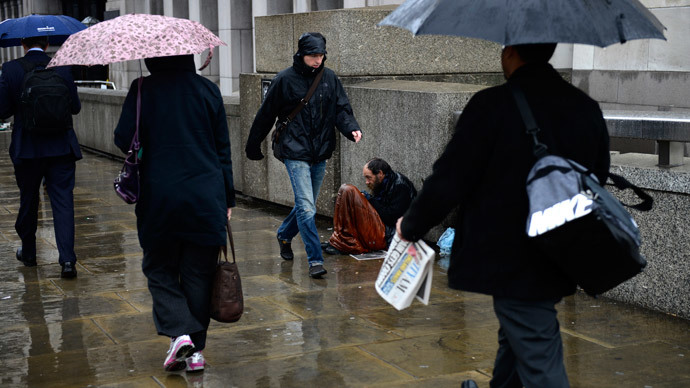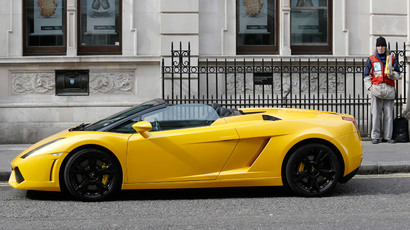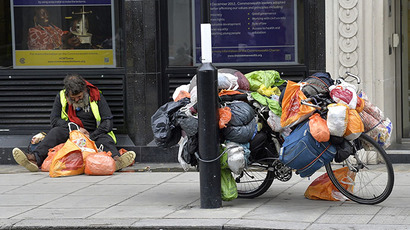UK would be the poorest state if joined the US - report

If Britain were to leave the European Union and join the United States, it would be the poorest of all US states based on GDP per capita, figures uncovered by The Spectator show.
According to Fraser Nelson, editor of the current affairs magazine, if you were to take GDP per US state, divide it by population, and compare it with the latest data from the UK Treasury, Britain would fall behind the poorest US states of Kansas, Alabama and Missouri, currently marred by the Ferguson riots.
GDP
Gross Domestic Product estimates are measures of a whole country or region’s economic output. Per-capita GDP is a measure to account for population growth in those areas.
PPP
Purchasing Power Parity is a technique used to determine the relative value of different currencies which can help minimize misleading international comparisons. It is a measure of what can be bought with a given currency.
Based on the US average, only Mississippi comes out poorer than the UK until Purchasing Power Parity (PPP) is added into the equation. When spending power is taken into account, based on how much can be bought with $100 in the UK and each US state, Britain’s PPP adjusted GDP per capita falls to last place in the ranking.
The figures come as a surprise to those who compare the level of conspicuous poverty in the US against the financial preeminence of London, recently named by Forbes as “The World’s Most Influential City” for its abundance of foreign direct investment deals. While both nations share vast social inequality, it is thought to be less conspicuous in the UK.
The Luxemburg Income Study database (LIS) shows middle-earning Americans are better-off than Brits. Even lower-income Americans – those in the bottom 20 percent – are better-off than their British counterparts. The only group actually worse off are the bottom 5 percent.
Meanwhile, Oxfam claims the combined fortunes of Britain’s five richest families are worth more than the poorest 20 percent of the population. The charity calculated that Britain’s five richest families have a fortune of £28.2 billion ($46.9 billion), more than the £28.1 billion ($46.7 billion) shared between the poorest 20 percent of the UK population.
Over the past two decades, the richest 0.1 percent of the UK population has seen its wealth grow almost four times faster than the top 90 percent of the population. In real terms, the rich have seen their income rise by £24,000 ($40,000) every year.
At the other end of the spectrum, food poverty has risen to such an extent that malnutrition is fast becoming more common in the UK, with a 19 percent increase in the number of citizens hospitalized for malnutrition over the past 12 months. Britain’s Faculty of Public Health has linked the growing trend to people’s inability to afford quality food.
About one in three UK families now live below the breadline, despite the British economy doubling in size over the same period.














